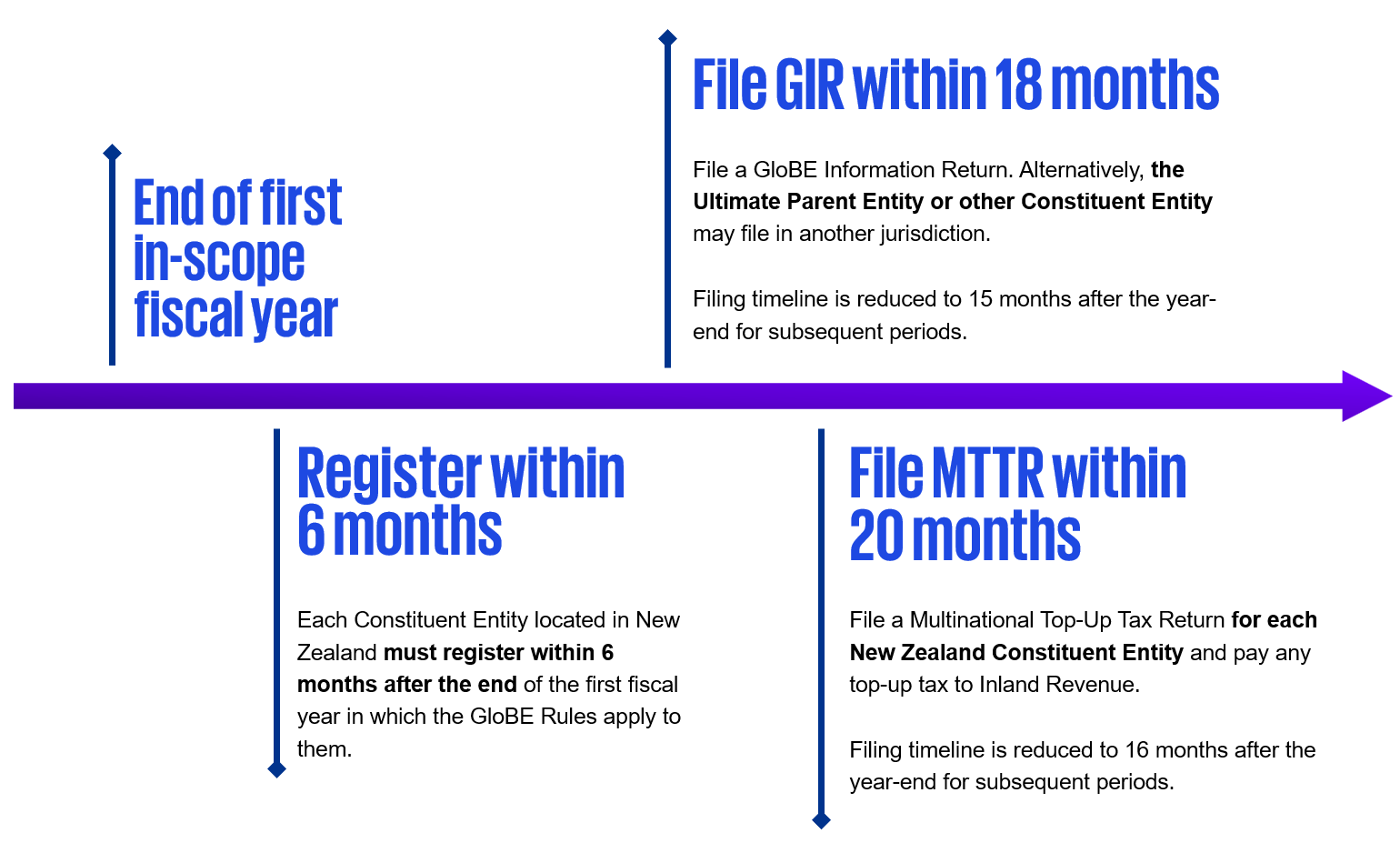The New Zealand implementation approach
The GloBE Rules were incorporated into New Zealand domestic law with the enactment of the Taxation (Annual Rates for 2023-24, Multinational Tax, and Remedial Matters) Act 2024, which takes effect for income years beginning on or after 1 January 2025.
Instead of hardwiring the GloBE Rules into domestic legislation, as seen in other jurisdictions, the New Zealand Government has decided to incorporate the GloBE Rules, together with the OECD Commentary and Administrative Guidance, by reference. This is supplemented with specific domestic provisions to address necessary modifications for the New Zealand context. While this approach is broadly consistent with New Zealand’s transfer pricing regime, it is inconsistent with the implementation of other BEPS measures, such as the hybrid and branch mismatch rules which have been hardwired into New Zealand legislation.
Incorporation of the GloBE Rules by reference means that any amendments to the OECD Commentary and Administrative Guidance will automatically form part of New Zealand domestic law, unless the Government regulates to exclude the amendments. Although this approach is uncommon, it acknowledges the global nature of the rules and recognises the importance of administrative coherence between jurisdictions. It also means that in-scope MNEs, including impacted New Zealand headquartered multinationals, will need to keep on top of global developments.
New Zealand has decided not to implement a QDMTT. Instead, a Domestic Income Inclusion Rule (DIIR) has been enacted, which only applies to New Zealand headquartered MNEs with low-taxed New Zealand income. The DIIR will come into effect for income years commencing on or after 1 January 2026.
Inland Revenue has the authority to issue binding rulings to taxpayers regarding the application of the GloBE Rules, including the interpretation of the OECD Commentary and Administrative Guidance.
For more detailed information, Inland Revenue’s commentary on the legislation can be accessed here: TIB - May 2024 (ird.govt.nz).




